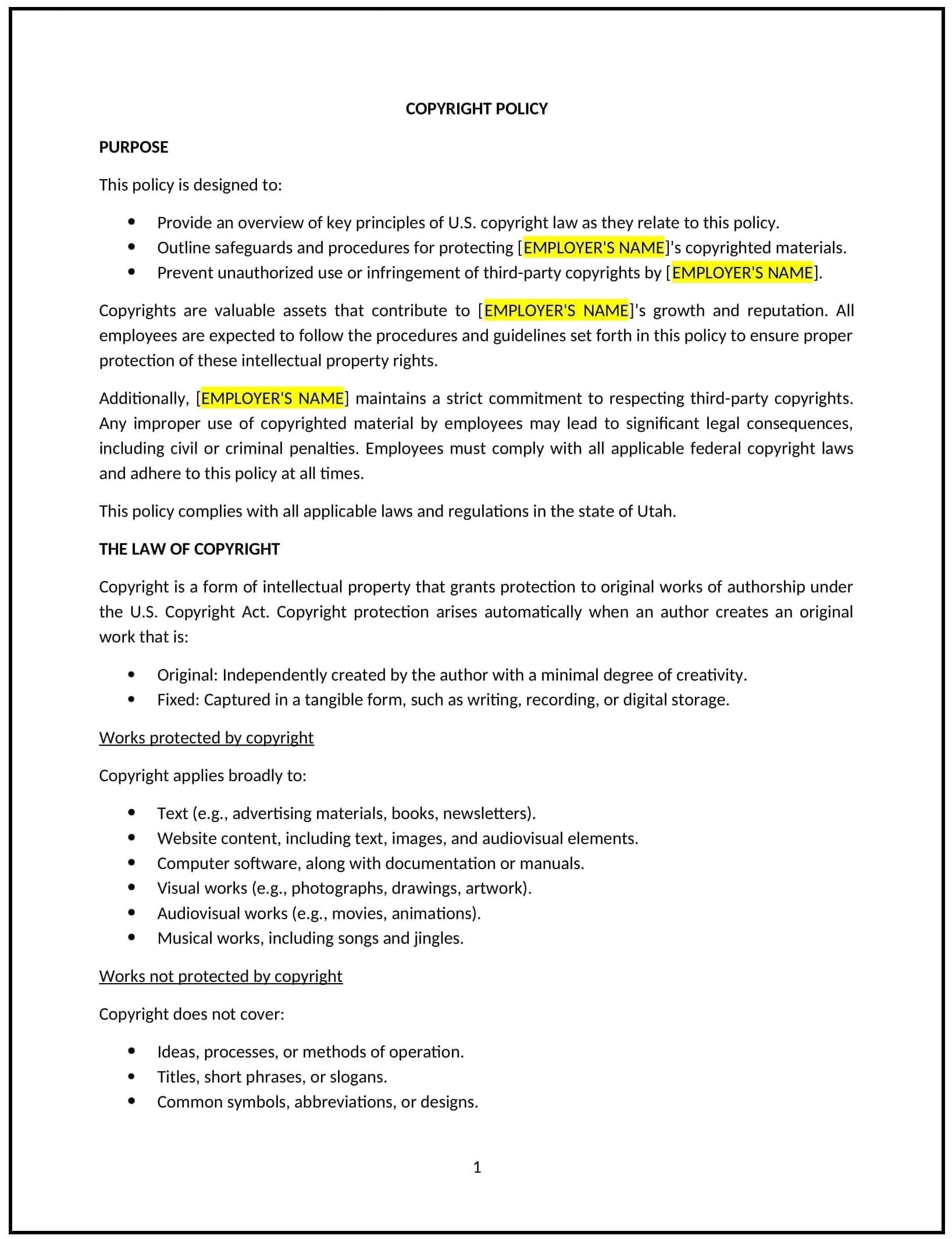Got contracts to review? While you're here for policies, let Cobrief make contract review effortless—start your free review now.

Customize this template for free
Copyright policy (Utah)
This copyright policy is designed to help Utah businesses establish guidelines for respecting intellectual property rights and avoiding copyright infringement. It outlines procedures for using copyrighted materials, obtaining permissions, and addressing potential violations.
By adopting this policy, businesses can protect themselves from legal risks, promote ethical practices, and align with general best practices for intellectual property management.
How to use this copyright policy (Utah)
- Define copyright principles: Explain what copyright is and how it applies to materials such as text, images, videos, and software.
- Outline usage rules: Specify how employees can use copyrighted materials, including fair use guidelines and licensing requirements.
- Obtain permissions: Provide steps for obtaining proper permissions or licenses to use copyrighted materials.
- Address violations: Outline procedures for handling potential copyright violations, including removing infringing content and resolving disputes.
- Train employees: Educate employees on copyright laws, fair use, and the importance of respecting intellectual property rights.
- Monitor compliance: Regularly review materials used by the business to ensure they comply with copyright laws.
- Review and update: Assess the policy annually to ensure it aligns with evolving copyright laws and business needs.
Benefits of using this copyright policy (Utah)
This policy offers several advantages for Utah businesses:
- Reduces legal risks: Helps businesses avoid copyright infringement claims and potential penalties.
- Promotes ethical practices: Demonstrates a commitment to respecting intellectual property rights.
- Aligns with best practices: Provides a structured approach to managing copyrighted materials.
- Enhances reputation: Builds trust with stakeholders by showing the business values intellectual property.
- Supports creativity: Encourages the use of original or properly licensed materials.
Tips for using this copyright policy (Utah)
- Communicate the policy: Share the policy with employees and include it in the employee handbook.
- Provide training: Educate employees on copyright laws, fair use, and the importance of respecting intellectual property.
- Monitor compliance: Regularly review materials used by the business to ensure they comply with copyright laws.
- Address violations promptly: Take corrective action if copyrighted materials are used without proper permissions.
- Update regularly: Assess the policy annually to ensure it aligns with evolving copyright laws and business needs.